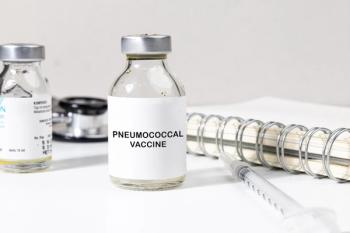
Strides in Research are Happening for CBD, But More Work is Needed
The endocannabinoid system is a complicated, yet important part of the human body’s ability to function. Jennifer Cooper, the chief science officer at Savant Sciences, discussed this interaction along with hemp CBD’s ability to work across a wide range of health conditions at the Natural Products Expo EAST in Baltimore, MD.
Cooper opened up the presentation discussing her view on the natural products industry.
“One of the things I truly love about this industry is that it’s not just a good business, it’s not just a job,” she said. “It’s also a lifestyle, it’s an ethic, it’s a philosophy, and I love that because it comes through in how passionate people are about the category.”
Although Cooper said that hemp CBD can provide many benefits to the human body, she reminded the audience that there is no “magic pill” that can undo the years of bad choices that consumers have made in one shot. The strides we have made in science are helpful, but it is not a magic solution to every problem, according to Cooper.
She continued her presentation with a detailed lesson on the endocannabinoid system (ECS), including the specific enzymes and receptors that assist in breaking down other cannabinoids. Cooper said that “the cannabinoid is a part of almost every biologic process in the body, like the lymphatic system, but it doesn’t get nearly as much attention in medical school like the other systems.”
The ECS is a critical system involved in establishing and maintaining physiological balance and human health, according to the presentation. Various lifestyle factors, such as diet, exercise, and sleep, can impact the overall function and tone of the ECS.
Cooper continued her extensive description of the ECS by mentioning the health conditions that are influenced by cannabinoids. Alzheimer’s, bipolar, chronic pain, cancers, HIV/AIDS, MRSA, and many other conditions are among the diseases she mentioned that can be therapeutic with the use of cannabinoids.
Although there has been much research behind the effects of cannabinoids, Cooper reminded the audience that “we don’t know the answers to some of these. CBD looks really decked out and THC because they’re the savviest, but we’re figuring out and exploring the different applications still.”
An important piece of advice from Cooper’s presentation was to still treat cancer as a sensitive subject.
“I beg you to be very careful in your literature while talking about it,” she said. “Not because it’s not promising, but because it is very detrimental to the whole industry if we are perceived of going after demographics that are chronic or hopeless…it’s just not structured.”
Regarding CBD, Cooper mentioned how differently this product is treated compared with the other products on the market.
“We approve drugs that have psychological side effects, but we’re on a tight rope on this particular substance,” she said. “I think it’s treated a little more harshly when it’s in clinical trials.”
Cooper discussed the many truths and myths related to CBD, including its tolerance and its psychological effects. Many people do not realize that there is no set specification for the consumption of CBD products, because people differ by dose, frequency, different times of the day, and genetics, according to the presentation.
Cooper emphasized CBD’s effect to decrease social anxiety and increase mental sedation without altering physical sedation; however, she advised store owners to “start low and go slow.” Many people tend to take higher doses of CBD or continue to consume more when they don’t feel any effects. This can lead to an unsafe consumption, and possible hospitalization.
“Everything has toxicity,” she said. “Everything can be unsafe at the wrong dose. Water isn’t safe at the wrong dose …that’s called drowning.”
To conclude her presentation, Cooper mentioned the role of the ECS on different parts of the body, such as the liver, cardiovascular system, digestive system, and the circadian regulation system. The circadian regulation system was one she favored, as it has been shown to reduce insomnia symptoms and PTSD-related sleep disturbances. Nightmares and excessive daytime sleepiness can also be reduced with the consumption of CBD, according to Cooper.
Reference
Cooper J. Research Update; September 11, 2019. Presented at the 2019 Natural Products Expo EAST in Baltimore, MD. Accessed September 19, 2019.
Newsletter
Pharmacy practice is always changing. Stay ahead of the curve with the Drug Topics newsletter and get the latest drug information, industry trends, and patient care tips.























